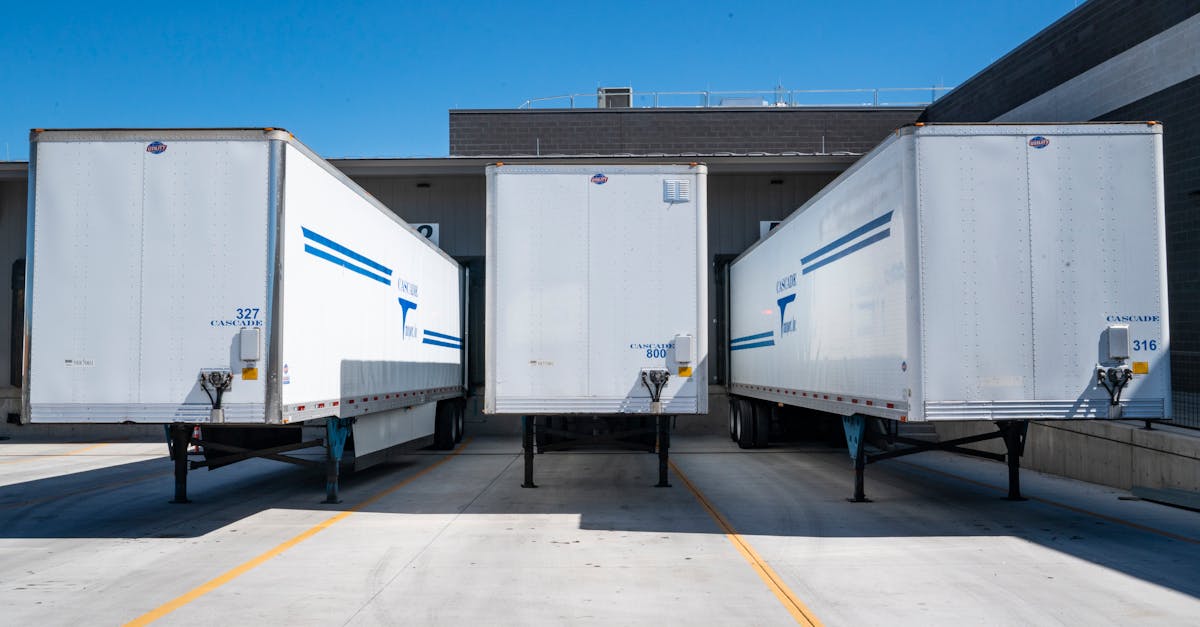Reliability and On-Time Delivery

The Backbone of a Successful E-Commerce Business
When it comes to running a successful e-commerce business, there are several key factors that can make or break your reputation and customer loyalty. Among these, reliability and on-time delivery are perhaps the most critical. Your customers expect their orders to arrive promptly and in good condition, and any failure to meet these expectations can result in negative reviews, lost sales, and a damaged brand reputation.
That’s why it’s essential to choose a courier service that can provide reliable and timely delivery of your products. But what exactly does reliability and on-time delivery entail, and how can you ensure that your chosen courier service can meet these expectations?
What is Reliability in Courier Services?
Reliability in courier services refers to the ability of the service provider to consistently deliver packages on time, in good condition, and to the correct location. This involves a range of factors, including the courier’s fleet management, driver training, and logistics infrastructure. A reliable courier service is one that can adapt to changing circumstances, such as traffic congestion or inclement weather, and still manage to deliver packages on schedule.
A reliable courier service is also one that provides accurate tracking information, so that you and your customers can stay informed about the status of their packages. This helps to build trust and confidence in the delivery process, and can reduce the likelihood of customer queries and complaints.
The Importance of On-Time Delivery
On-time delivery is, of course, a critical component of reliability in courier services. When packages are delivered late, it can cause inconvenience and frustration for your customers, and can damage your reputation as a business. In fact, research has shown that late delivery is one of the most common reasons for customer complaints in e-commerce.
On-time delivery is especially important for businesses that operate in competitive markets, where customer loyalty is hard-won and easily lost. If your customers can’t rely on you to deliver their orders promptly, they may take their business elsewhere.
On-time delivery is also critical for businesses that offer time-sensitive or perishable products, such as food, pharmaceuticals, or electronics. In these cases, late delivery can result in spoiled or damaged goods, which can lead to costly returns and refunds.
How to Ensure Reliability and On-Time Delivery
So, how can you ensure that your chosen courier service provides reliability and on-time delivery? Here are some key factors to consider:
- Track record: Look for a courier service with a proven track record of reliability and on-time delivery. Check online reviews, ask for references, and review their service level agreements (SLAs) to get a sense of their performance.
- Fleet management: A well-maintained fleet of vehicles is essential for reliable and on-time delivery. Look for a courier service that regularly maintains and updates its vehicles, and has a robust fleet management system in place.
- Driver training: A well-trained driver is essential for reliable and on-time delivery. Look for a courier service that provides ongoing training and support for its drivers, and has a robust system in place for managing driver performance.
- Logistics infrastructure: A robust logistics infrastructure is critical for reliable and on-time delivery. Look for a courier service that has a comprehensive network of distribution centers, warehouses, and sorting facilities.
- Real-time tracking: Real-time tracking is essential for transparency and accountability in the delivery process. Look for a courier service that provides real-time tracking information, and has a system in place for monitoring and managing exceptions.
By considering these factors, you can ensure that your chosen courier service provides the reliability and on-time delivery that your e-commerce business needs to succeed.
In conclusion, reliability and on-time delivery are critical components of a successful e-commerce business. By choosing a courier service that can provide these essential services, you can build trust and confidence with your customers, reduce the risk of customer complaints and negative reviews, and ultimately drive business growth and success.
Cost-Effective Options

When it comes to selecting a courier for your e-commerce business, cost is often a top priority. As an online retailer, you want to ensure that you’re getting the best value for your money without compromising on the quality of service. Fortunately, there are several cost-effective options to consider, each with its own set of benefits and drawbacks.
Regional Couriers
Regional couriers are an excellent option for businesses that operate within a specific geographic area. By partnering with a regional courier, you can benefit from lower rates compared to national or international carriers. This is because regional couriers have lower operational costs, which are then passed on to you, the customer.
In addition to cost savings, regional couriers often provide a more personalized service, which can lead to higher customer satisfaction rates. They may also be more flexible when it comes to handling special requests or making adjustments to delivery schedules.
Consolidated Shipping
Consolidated shipping is another cost-effective option to consider. This involves partnering with a third-party logistics provider that consolidates your packages with those of other businesses, allowing for shared transportation costs. By doing so, you can reduce your overall shipping expenditure without sacrificing delivery times or service quality.
Consolidated shipping is particularly useful for businesses that have low to moderate shipping volumes. It’s also an environmentally friendly option, as it reduces the number of vehicles on the road and lowers carbon emissions.
Hybrid Courier Services
Hybrid courier services are a relatively new concept that combines the benefits of traditional courier services with the cost-effectiveness of regional couriers. These services typically use a network of local couriers to make final-mile deliveries, while relying on national carriers for long-haul transportation.
By leveraging the strengths of both models, hybrid courier services can offer competitive pricing, fast delivery times, and increased flexibility. They may also provide real-time tracking and monitoring, giving you greater visibility over your shipments.
Negotiating with Couriers
Another way to reduce shipping costs is to negotiate with couriers directly. If you’re a high-volume shipper, you may be able to secure discounts or customized rate structures that meet your specific needs.
When negotiating with couriers, be sure to have a clear understanding of your shipping requirements, including package weights, dimensions, and delivery frequencies. This will enable you to make a strong case for why you deserve better rates.
Using Courier Brokerage Services
Courier brokerage services act as intermediaries between you and multiple courier companies. They can help you find the most cost-effective solution for your shipping needs, often by accessing a network of regional and national carriers.
By using a courier brokerage service, you can avoid the hassle of negotiating with individual couriers and focus on other aspects of your business. These services may also provide additional benefits, such as insurance coverage, tracking, and customer support.
In conclusion, there are several cost-effective options to consider when selecting a courier for your e-commerce business. Whether you opt for regional couriers, consolidated shipping, hybrid courier services, negotiating with couriers, or using courier brokerage services, it’s essential to weigh the pros and cons of each option carefully. By doing so, you can find a solution that meets your business needs while keeping costs under control.
Range of Services Offered

When selecting a courier for your e-commerce business, it’s essential to consider the range of services they offer. A courier that provides a comprehensive suite of services can help you streamline your logistics, improve customer satisfaction, and increase your competitive edge. In this section, we’ll explore the various services you should look for in a courier partner.
Same-Day and Next-Day Delivery
Fast and reliable delivery options are critical in today’s e-commerce landscape. Look for a courier that offers same-day and next-day delivery services to ensure your customers receive their orders promptly. This is particularly important for businesses that sell perishable goods, offer urgent services, or operate in highly competitive markets.
A courier that offers flexible delivery schedules can help you better manage your inventory, reduce storage costs, and improve customer satisfaction. Additionally, same-day and next-day delivery options can help you stay ahead of your competitors and increase customer loyalty.
International Shipping
If you plan to expand your e-commerce business beyond local borders, you’ll need a courier that offers reliable and cost-effective international shipping services. Look for a courier that has an established network of partners and agents in different countries, ensuring seamless delivery of your packages worldwide.
An experienced international courier will be familiar with customs regulations, taxes, and duties, ensuring that your packages clear customs efficiently and minimizing the risk of delays or losses. They should also provide real-time tracking and update services, giving you and your customers peace of mind.
Specialized Handling and Storage
Some e-commerce businesses require specialized handling and storage services, such as refrigerated storage for perishable goods or secure storage for high-value items. Look for a courier that offers tailored services to meet your specific needs, ensuring that your products are handled and stored with care.
A courier that provides specialized handling and storage services can help you reduce damage claims, improve product quality, and increase customer satisfaction. They should also have the necessary equipment, facilities, and trained staff to handle your products with care.
Returns Management
Returns are an inevitable part of e-commerce, and having a courier that offers efficient returns management services can save you time, money, and resources. Look for a courier that provides dedicated returns processing, including pickup, inspection, and reshipment or refund processing.
A courier with a robust returns management system can help you reduce returns-related costs, improve customer satisfaction, and increase the efficiency of your logistics operations. They should also provide real-time tracking and update services, ensuring that you and your customers are informed throughout the returns process.
Real-Time Tracking and Update Services
Real-time tracking and update services are essential for providing a seamless customer experience. Look for a courier that offers advanced tracking technology, allowing your customers to stay informed about the status of their orders from pickup to delivery.
A courier with real-time tracking and update services can help you reduce customer inquiries, improve delivery efficiency, and increase customer satisfaction. They should also provide regular updates on delivery exceptions, such as weather-related delays or address corrections, ensuring that you and your customers are always informed.
Customized Solutions
Every e-commerce business is unique, and a one-size-fits-all approach to logistics may not always be effective. Look for a courier that offers customized solutions tailored to your specific business needs, including bespoke packaging, specialized equipment, or dedicated vehicles.
A courier that provides customized solutions can help you differentiate your business, improve customer satisfaction, and increase operational efficiency. They should work closely with you to understand your business goals and develop a customized logistics plan that meets your needs and exceeds your customers’ expectations.
In conclusion, the range of services offered by a courier is a critical factor to consider when selecting a logistics partner for your e-commerce business. By choosing a courier that provides a comprehensive suite of services, you can improve customer satisfaction, increase operational efficiency, and stay ahead of your competitors in the market.
Insurance Coverage

When selecting a courier for your e-commerce business, one of the critical factors to consider is insurance coverage. With the rise of online shopping, the risk of loss, damage, or theft during transit is a significant concern for business owners. In this section, we will delve into the importance of insurance coverage and what you should look for in a courier’s insurance policy.
Why Insurance Coverage Matters
In the event of a loss or damage, insurance coverage can provide financial protection to your business and your customers. Without adequate insurance coverage, you may be left with significant financial losses, damage to your reputation, and dissatisfied customers. Moreover, insurance coverage can also provide peace of mind, allowing you to focus on growing your business rather than worrying about potential risks.
Types of Insurance Coverage
There are several types of insurance coverage that couriers may offer, including:
- Liability insurance: covers damages or losses caused by the courier’s negligence or error.
- Cargo insurance: covers loss or damage to goods during transit.
- Theft insurance: covers loss or theft of goods during transit.
<li Errors and omissions insurance: covers mistakes made by the courier, such as incorrect delivery or missed pickups.
When evaluating a courier’s insurance coverage, it is essential to understand the types of coverage they offer, the limits of coverage, and any exclusions or exceptions.
What to Look for in a Courier’s Insurance Policy
When reviewing a courier’s insurance policy, there are several key factors to consider:
- Coverage limits: What is the maximum amount the insurance policy will cover in the event of a loss or damage?
- Deductible: How much will you need to pay out of pocket in the event of a claim?
- Exclusions: Are there any types of items or situations that are exempt from coverage?
- Claims process: How does the courier handle claims, and what is the typical turnaround time for resolution?
- Premiums: What are the costs associated with the insurance coverage, and are they competitive with other courier services?
It is also essential to review the courier’s insurance provider to ensure they are reputable and have a good claims settlement record.
Conclusion
In conclusion, insurance coverage is a critical factor to consider when selecting a courier for your e-commerce business. By understanding the types of coverage available, reviewing the courier’s insurance policy, and evaluating the key factors mentioned above, you can ensure that your business and customers are protected in the event of a loss or damage during transit.
Customer Service and Support

When it comes to choosing a courier for your e-commerce business, customer service and support are crucial factors to consider. As an online retailer, you rely on your courier to deliver your products to your customers efficiently and effectively. Any issues that arise during the shipping process can have a direct impact on your customer satisfaction and loyalty, which in turn can affect your business’s reputation and bottom line.
Why Customer Service and Support Matter
A courier’s customer service and support can make all the difference in resolving issues quickly and efficiently. When problems arise, such as missed deliveries, lost or damaged packages, or incorrect orders, your courier’s customer service team should be able to resolve the issue promptly and professionally. This not only saves you time and effort but also ensures that your customers receive the best possible experience.
A good courier customer service team should be able to:
- Answer queries and resolve issues promptly and efficiently
- Provide clear and concise communication about the status of deliveries
- Offer solutions and alternatives when issues arise
- Be knowledgeable about the courier’s services and policies
- Be friendly, polite, and courteous in their interactions with customers
Having a reliable and efficient customer service team in place can also help to reduce the likelihood of disputes and claims, which can be time-consuming and costly to resolve.
What to Look for in a Courier’s Customer Service and Support
When evaluating a courier’s customer service and support, there are several key factors to consider:
- Response times: How quickly does the courier respond to queries and issues?
- Availability: Are the customer service team available during hours that suit your business needs?
- Communication channels: Does the courier offer multiple communication channels, such as phone, email, and live chat?
- Resolution rates: How effectively does the courier resolve issues and respond to customer complaints?
- Proactive approach: Does the courier take a proactive approach to resolving issues and preventing problems from arising in the first place?
- Online resources: Does the courier provide online resources, such as FAQs and knowledge bases, to help customers troubleshoot issues and find answers to common questions?
By considering these factors, you can get a better sense of whether a courier’s customer service and support are up to scratch and able to meet the needs of your e-commerce business.
In conclusion, customer service and support are critical components of a courier service. By choosing a courier that prioritizes customer service and support, you can ensure that your customers receive the best possible experience, and your business benefits from increased customer satisfaction and loyalty.
Track and Trace Capabilities

Real-time Visibility for You and Your Customers
When it comes to choosing a courier for your e-commerce business, track and trace capabilities are a crucial factor to consider. This feature allows you to keep tabs on your shipments in real-time, providing you and your customers with up-to-the-minute updates on the status of their orders.
In today’s digital age, customers expect to be kept informed throughout the delivery process. With track and trace capabilities, you can provide them with the transparency they crave, reducing the likelihood of queries and complaints. Moreover, having access to real-time tracking information enables you to identify and rectify any issues that may arise during transit, ensuring that your customers receive their orders on time and in good condition.
Benefits for Your Business
In addition to enhancing the customer experience, track and trace capabilities can also have a significant impact on your business operations. By having visibility over your shipments, you can:
- Optimise your logistics and shipping strategies to reduce costs and improve efficiency
- Identify and address any issues that may be causing delays or losses, allowing you to take corrective action quickly
- Improve your inventory management by tracking stock levels and transit times
- Enhance your customer service by providing accurate and timely updates on order status
- Reduce the likelihood of lost or stolen packages, minimizing the risk of financial loss
Key Features to Look for
When evaluating a courier’s track and trace capabilities, there are several key features to look for. These include:
- Real-time tracking updates, providing you and your customers with up-to-the-minute information on shipment status
- Automated notifications, keeping you and your customers informed of any changes to the delivery schedule
- Customizable tracking options, allowing you to tailor the tracking experience to your business needs
- Accurate and reliable tracking data, ensuring that you and your customers have confidence in the delivery process
- Integration with your e-commerce platform, streamlining the shipping process and reducing the risk of errors
Conclusion
In conclusion, track and trace capabilities are an essential feature to consider when choosing a courier for your e-commerce business. By providing real-time visibility over your shipments, you can enhance the customer experience, improve your business operations, and reduce the risk of financial loss. When evaluating a courier’s track and trace capabilities, look for key features such as real-time tracking updates, automated notifications, and customizable tracking options. By doing so, you can ensure that you’re partnering with a courier that can help your business thrive.
Security and Fraud Prevention

When it comes to picking a courier for your e-commerce business, security and fraud prevention should be at the top of your priority list. With online fraud on the rise, it’s essential to partner with a courier that takes the necessary measures to protect your business and customers from fraudulent activities. In this section, we’ll discuss the importance of security and fraud prevention in the courier industry and what to look for in a courier partner.
Why Security and Fraud Prevention Matter
Fraudulent activities can have devastating consequences for your e-commerce business, including financial loss, damage to your reputation, and legal liabilities. According to a report by the National Fraud Intelligence Bureau, online fraud accounted for approximately 70% of all fraud reported in the UK in 2020. With fraudulent activities on the rise, it’s crucial to take proactive measures to prevent them from occurring in the first place.
A courier that takes security and fraud prevention seriously can help mitigate these risks and provide an additional layer of protection for your business and customers. By partnering with a courier that prioritizes security, you can reduce the risk of fraudulent activities, protect your customers’ sensitive information, and maintain the trust and confidence of your customers.
What to Look for in a Courier Partner
When evaluating potential courier partners, there are several key factors to consider when it comes to security and fraud prevention. Here are some essential features to look for:
-
Secure tracking and monitoring systems: A secure tracking and monitoring system can help track packages in real-time, reducing the risk of lost or stolen packages.
-
Authentication and verification processes: Look for a courier that has authentication and verification processes in place to ensure that packages are delivered to the correct person and address.
-
Encryption and secure data storage: Ensure that the courier uses encryption and secure data storage to protect sensitive customer information, such as names, addresses, and payment details.
-
Insurance and liability coverage: Partner with a courier that provides insurance and liability coverage in the event of lost or damaged packages.
-
Regular security audits and testing: Look for a courier that regularly conducts security audits and testing to identify and address any vulnerabilities in their systems.
-
Certifications and compliance: Ensure that the courier is certified and compliant with industry standards, such as ISO 27001, and relevant regulations, such as GDPR.
Additional Tips for Security and Fraud Prevention
In addition to partnering with a courier that prioritizes security and fraud prevention, there are several steps you can take to further protect your business and customers:
-
Implement a secure payment gateway: Use a secure payment gateway that uses encryption and two-factor authentication to protect customer payment information.
-
Use secure packaging: Use secure packaging that is difficult to tamper with and includes clear labeling and branding.
-
Monitor for suspicious activity: Regularly monitor for suspicious activity, such as multiple failed delivery attempts or unusual package tracking information.
-
Train employees: Train employees on security and fraud prevention best practices, such as verifying customer identities and being cautious of phishing scams.
By partnering with a courier that takes security and fraud prevention seriously and implementing additional security measures, you can provide an additional layer of protection for your business and customers. Remember, security and fraud prevention are ongoing processes that require regular monitoring and improvement to stay ahead of fraudulent activities.
By taking proactive measures to prevent fraud and protect your business, you can reduce the risk of financial loss, damage to your reputation, and legal liabilities, and maintain the trust and confidence of your customers.
Sustainability and Environmental Impact

As an e-commerce business owner, you’re likely to be concerned about the environmental footprint of your operations. With the growing awareness of climate change and the importance of sustainability, it’s essential to consider the ecological implications of your courier choices. In this section, we’ll delve into the significance of sustainability and environmental impact when picking a courier for your e-commerce business.
Why Sustainability Matters
In recent years, consumers have become increasingly eco-conscious, with many making purchasing decisions based on a company’s environmental credentials. As a result, businesses that prioritize sustainability are more likely to attract and retain customers, ultimately driving growth and revenue. Moreover, adopting sustainable practices can lead to cost savings, improved operational efficiency, and enhanced brand reputation.
When it comes to courier services, the environmental impact of their operations can be substantial. From fuel consumption to packaging waste, the carbon footprint of deliveries can be significant. By choosing a courier that prioritizes sustainability, you can reduce your business’s ecological footprint and contribute to a more environmentally friendly supply chain.
Key Sustainability Factors to Consider
When evaluating courier services, consider the following key sustainability factors:
-
Fleet management: Look for couriers that operate modern, fuel-efficient vehicles or alternative fuel vehicles, such as electric or hybrid vehicles.
-
Route optimization: Couriers that use route optimization software can reduce fuel consumption, lower emissions, and decrease travel time.
-
Packaging: Opt for couriers that use eco-friendly packaging materials, minimize packaging waste, and encourage recycling.
-
Carbon offsetting: Consider couriers that offer carbon offsetting options, which allow you to compensate for the emissions generated by your shipments.
-
Sustainability certifications: Look for couriers with recognized sustainability certifications, such as ISO 14001 (Environmental Management System) or CarbonNeutral.
Assessing Your Courier’s Sustainability Credentials
To ensure that your chosen courier aligns with your business’s sustainability goals, ask the following questions:
-
What measures do you take to reduce fuel consumption and lower emissions?
-
What eco-friendly packaging options do you offer?
-
Do you have a carbon offsetting program in place?
-
What sustainability certifications do you hold?
-
Can you provide data on your environmental performance and progress towards sustainability goals?
By asking these questions and prioritizing sustainability in your courier selection process, you can significantly reduce your business’s environmental impact and contribute to a more sustainable future.
In the next section, we’ll explore the importance of reliability and communication when choosing a courier for your e-commerce business.
Integration with Your E-Commerce Platform

When it comes to choosing a courier service for your e-commerce business, one crucial aspect to consider is how seamlessly the courier integrates with your existing e-commerce platform. A smooth integration can streamline your shipping process, reduce errors, and enhance the overall customer experience. In this section, we’ll delve into the importance of integration, the types of integrations available, and what to look for when selecting a courier service.
The Importance of Integration
Integrating your courier service with your e-commerce platform is essential for several reasons:
-
Real-time tracking: When your courier service is integrated with your e-commerce platform, you can provide customers with real-time tracking updates, ensuring they’re always informed about their package’s whereabouts.
-
Automated shipping: Integration enables automated shipping, eliminating the need for manual data entry, reducing errors, and saving time.
-
Streamlined order fulfillment: Integration facilitates seamless order fulfillment, allowing you to focus on other aspects of your business.
-
Enhanced customer experience: Integration enables you to provide customers with accurate, up-to-date information, leading to increased customer satisfaction and loyalty.
In addition to these benefits, integration also helps you to:
-
Manage inventory levels more effectively
-
Reduce shipping costs by optimizing routes and carriers
-
Gain valuable insights into shipping trends and patterns
Types of Integrations
There are several types of integrations available, each with its own strengths and weaknesses:
-
API Integration: This involves connecting your e-commerce platform and courier service via an Application Programming Interface (API). This type of integration provides real-time data exchange and is highly customizable.
-
Plugin Integration: Many e-commerce platforms offer plugins that integrate with popular courier services. These plugins are often easy to install and configure.
-
Native Integration: Some e-commerce platforms and courier services offer native integration, meaning they’re designed to work together seamlessly without the need for additional plugins or APIs.
What to Look for in a Courier Service
When selecting a courier service for your e-commerce business, consider the following factors to ensure a smooth integration:
-
API availability: Does the courier service offer an API for integration? Is it well-documented and easy to use?
-
Plugin support: Does the courier service offer plugins for popular e-commerce platforms?
-
Native integration: Does the courier service have native integration with your e-commerce platform?
-
Customization options: Can you customize the integration to meet your specific business needs?
-
Support and documentation: Does the courier service provide comprehensive support and documentation to help you integrate their service?
In conclusion, integrating your courier service with your e-commerce platform is crucial for streamlining your shipping process, reducing errors, and enhancing the customer experience. When selecting a courier service, be sure to consider the types of integrations available, the ease of implementation, and the level of customization and support provided.
